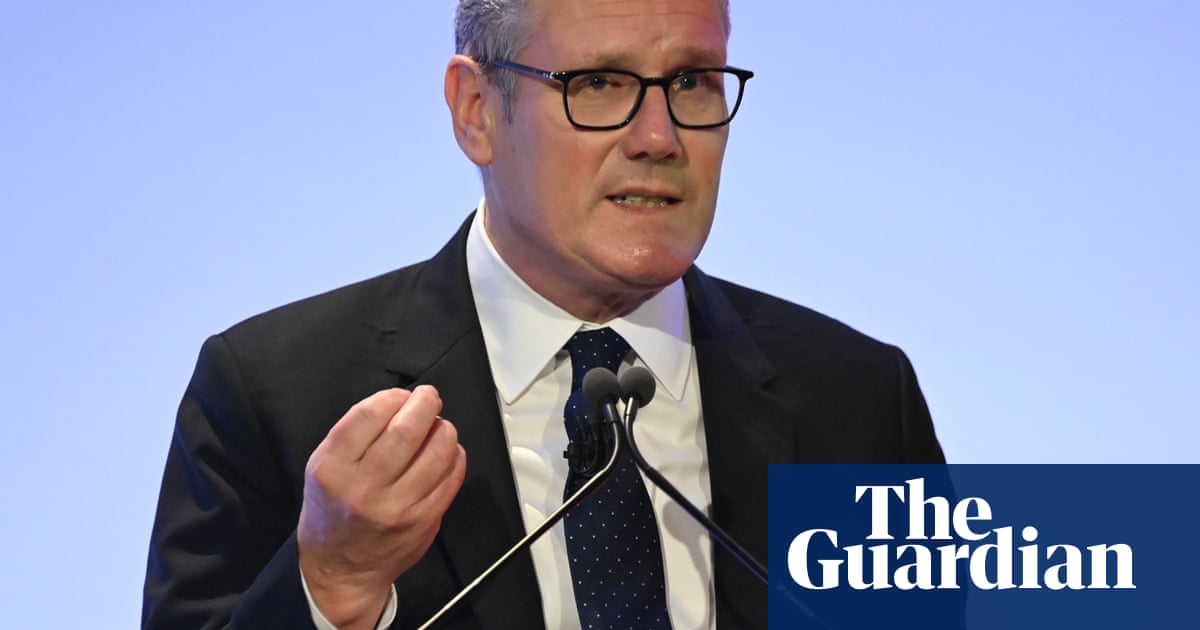After his third U-turn this month,Keir Starmerwill hope he has done enough to avoid a humiliating first Commons defeat as prime minister on Tuesday, even if he is now a diminished figure in front of his party and the country.
Over Wednesday night and Thursday, Starmer’s chief of staff, Morgan McSweeney, and the deputy PM, Angela Rayner, sat down with leading rebels and agreeda series of changesto the government’s welfare bill that ministers hope will be enough to get it over the line.
Those changes are likely to be significant enough to win over the support of dozens of moderates who had signed an amendment that would have put the bill on hold indefinitely. But they have damaged the prime minister’s reputation for embracing tough reforms, and his chancellor’s reputation for fiscal probity.
The health ministerStephen Kinnocksaid on Friday: “Keir Starmer is a prime minister who doesn’t put change and reform into the too-difficult box. He actually runs towards it and says: ‘Right, how do we fix it?’ And I’m sure that that’s what will be foremost in people’s minds on Tuesday.”
Meg Hillier, one of the leading rebels, told BBC Radio 4’s Today programme: “We’re going to see some of the fine detail of this on Monday. We’re expecting a written ministerial statement from the government, so we will get more detail then. But I think, in my view, we got as much as we can get in the timeframe involved.”
But others have spotted weakness. Helen Whately, the Conservative spokesperson on work and pensions, said: “This is another humiliating U-turn forced upon Keir Starmer … The latest ‘deal’ withLabourrebels sounds a lot like a two-tier benefits system, more likely to encourage anyone already on benefits to stay there rather than get into work.”
For the prime minister, this is the third time he has reversed course in recent weeks in the face of pressure from outside.
Earlier this month his chancellor,Rachel Reeves, announcedshe was undoing most of the cuts to winter fuel payments after a sustained political backlash. Just over a week ago, the prime ministertold reporterson the way to the G7 in Canada he was dropping his opposition to a national inquiry into grooming gangs after one was recommended by Louise Casey.
This week’s decision to change key parts of the welfare bill could prove the most expensive of all three.
Ministers will now limit their cuts so they only apply to new claimants and have also promised to lift the health element of universal credit in line with inflation. Along with promises to increase spending on back-to-work schemes and to redesign the entire system of personal independence payments (Pips), the Resolution Foundation estimates the entire U-turn could end up costing £3bn.
Reeves will set out the full costs of the package, and how she intends to pay for them, at the budget in the autumn. Asked about the cost of the U-turn on Friday, Kinnock would only say: “Matters of the budget are for the chancellor, and she will be bringing forward a budget in the autumn.”
Sign up toHeadlines UK
Get the day’s headlines and highlights emailed direct to you every morning
after newsletter promotion
But it is not just the cost of the immediate changes that Reeves will have to measure. Now she and the prime minister have developed a reputation for changing course in the face of backbench resistance, the chancellor is likely to come under heavy pressure over other issues Labour MPs care deeply about.
Hillier said on Friday the prime minister would now have to listen more carefully to his parliamentary colleagues. “There is huge talent, experience and knowledge in parliament, and it’s important it’s better listened to. And I think that message has landed.”
Top of many Labour MPs’ wishlist is an end to the two-child benefit cap. Starmer agrees on the importance of removing that cap altogether, but doing so would cost as much as £3.6bn a year by the end of the parliament.
This is why, as the government’s spending commitments grow, ministers are refusing to rule out tax rises this autumn. As Starmer has found out this week, angering nearly a third of your MPs is a costly business.
